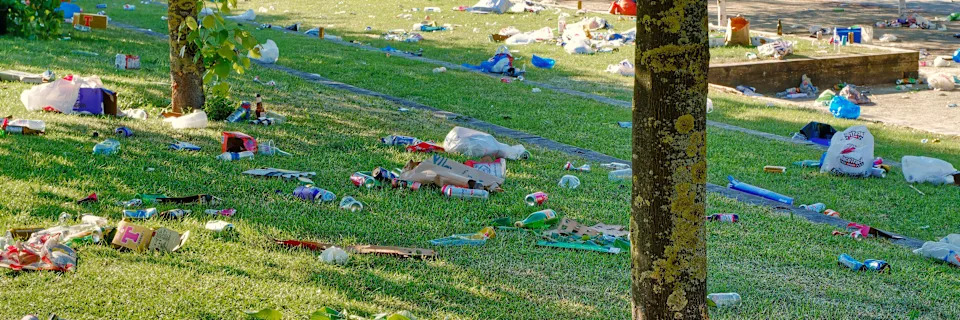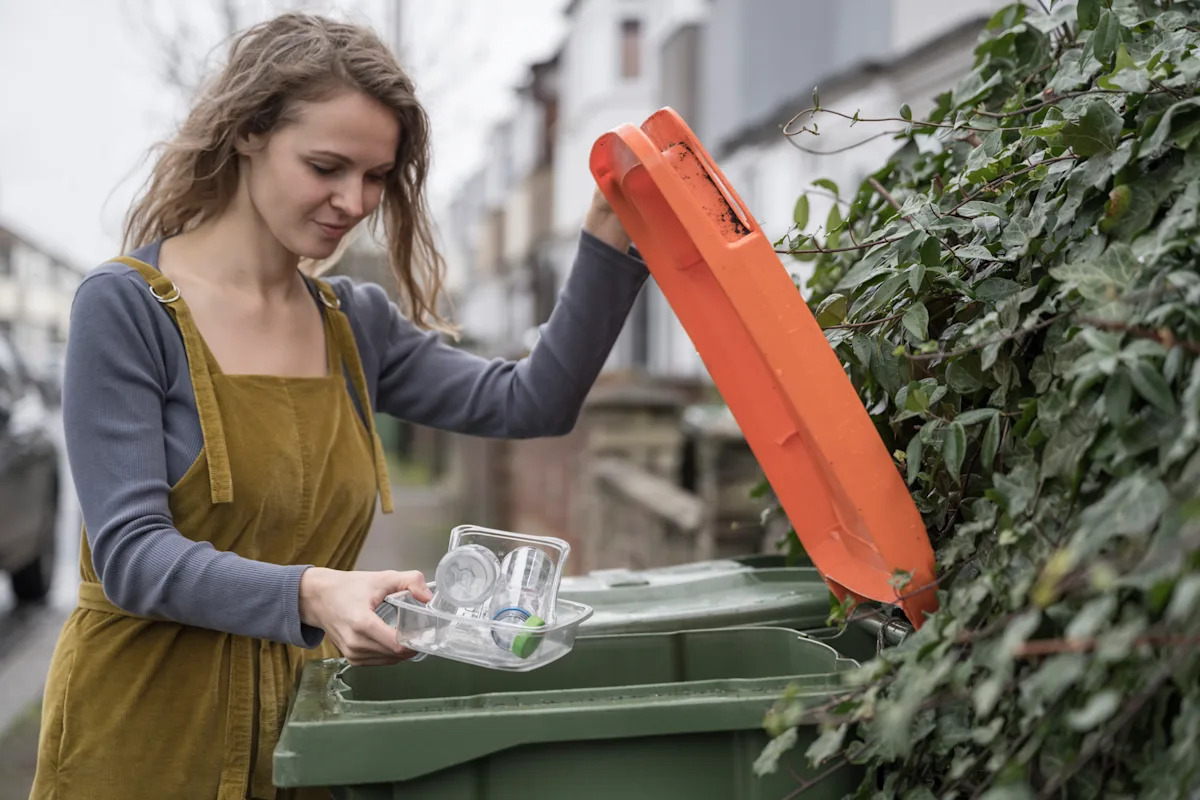Plastic recycling will change in England from 2027, when many plastics that previously ended up being incinerated will be recycled from kerbside green bins.
This includes some plastics that some British people might have assumed are already being recycled but aren’t, such as plastic films used to wrap foodstuffs.
A huge variety of the plastics we use every day – such as bottles, trays, cartons and ‘metallic’ plastics – will be recycled from March 2027 under the government’s Simpler Recycling scheme.
The number of bins outside British houses will also change in many areas.
What plastics will be recycled from 2027?
The biggest change to come into force from March 2027 is that plastic films and bags will be collected and recycled where possible.
Plastic films include (for example) the see-through coating on packets of chicken in the supermarket (at present, only the harder bottom half can be recycled).
A wide variety of so-called “flexible plastics” will also start to be collected, after a major three-year trial across 10 local authorities – which published its results last week – demonstrated the scheme was popular, practical and that the plastic collected was largely free from contamination.
Flexible plastics refer to packaging which flex easily, which can be made of both single and multiple layers of materials. This includes items like snack wrappers, zip-lock pouches, sachets, and bread bags.
Plastic recycling charity WRAP says that today, flexible plastic packaging represents nearly a quarter of all UK consumer plastic packaging, but just 7% is recycled.

Rubbish left in public park following football win celebrations
Certain new plastics will also be recycled including polyethylene terephthalate (PET), polypropylene (PP) and polyethylene (PE), which are used to make plastic bottles, pots, tubs and trays.
Food and drink cartons will also be recycled, along with metallised plastic film packaging and plastic bags. The government may add to this list of materials.
What will still not be recycled?
There will still be a fairly large amount of plastics that cannot be recycled.
Any plastic which is labelled as ‘compostable’ or ‘biodegradable’ will remain unable to be recycled in kerbside plastic collections. That includes popular items such as coffee pods.
Plastic bottles that have contained engine oils, paints, antifreeze or white spirit cannot be recycled.
Polystyrene (often used in foam packaging or packing beads) and polyvinyl chloride (PVC) packaging, used in shrink wrap and blister packs, will not be recycled either.
How will the recycling be collected?
One of the goals of the government’s Simpler Recycling scheme is to standardise recycling as much as possible. This will mean paper and card being collected in one bin, while other recyclable materials – including plastic, glass and metal – will all be collected in another bin.
Households will have four waste containers: paper; other dry recycling such as plastic, metal and glass; food waste (mixed with garden waste if appropriate); and ‘normal’ waste.
There will also be weekly collections of food waste in every council area, and a minimum of fortnightly collections for ‘normal’ rubbish.
What else is being done to curb plastic pollution?
The government’s new Deposit Return Scheme for drinks containers will pay consumers in England, Scotland and Northern Ireland to recycle bottles, with pickup points at supermarkets.
It comes into force from the first of October 2027.
Members of the public will pay a deposit on drinks bottles, which is then refunded when bottles are turned in for recycling.
The government is also consulting on further bans on single-use plastics including plates, cutlery and polystyrene cups.

